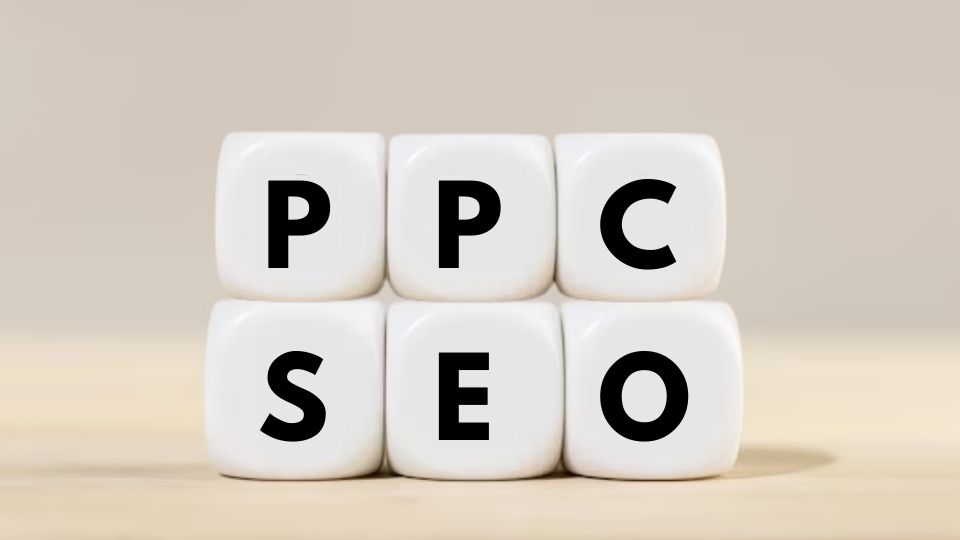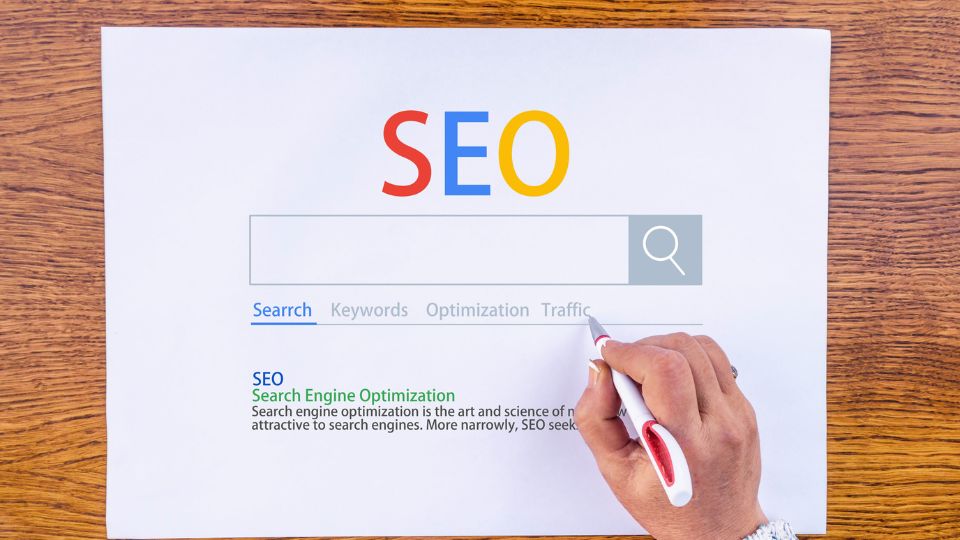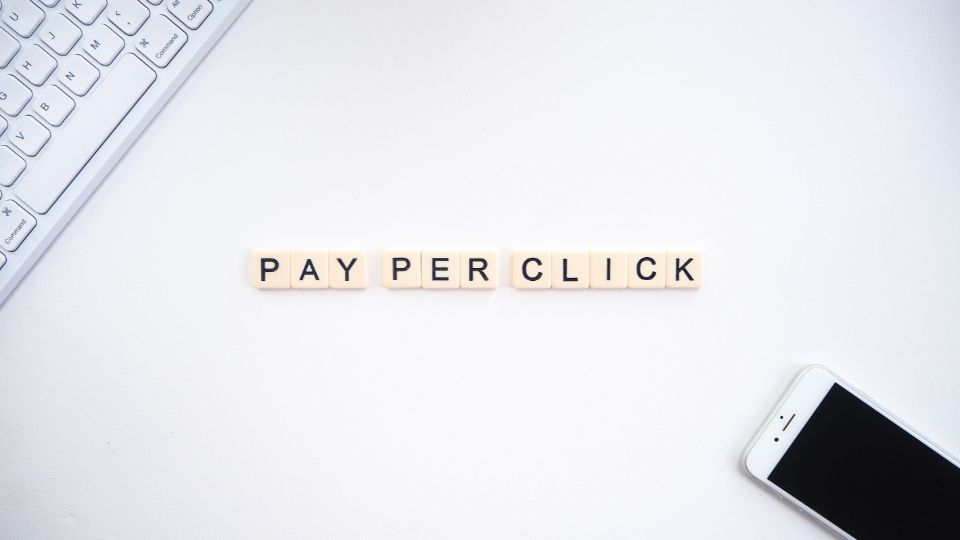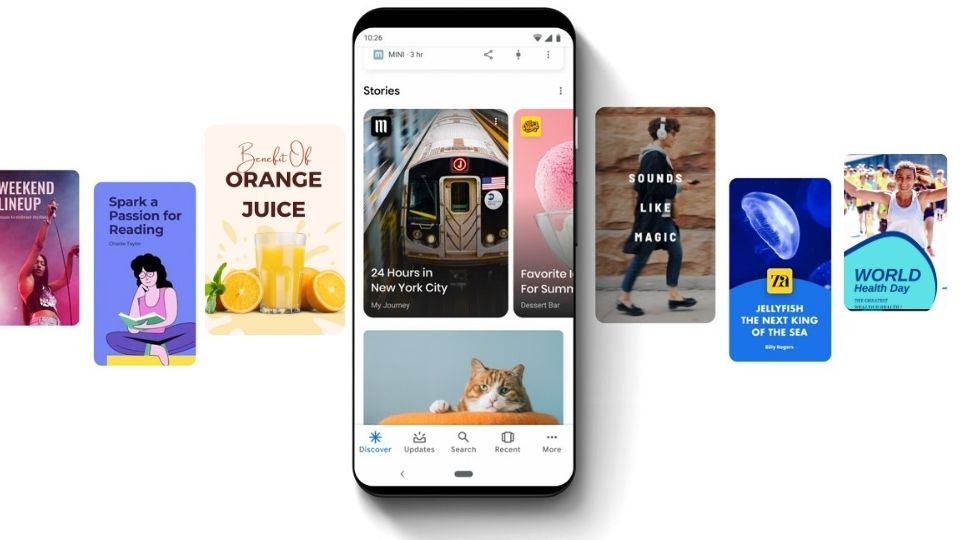
In this article, we are going to show you the differences between SEO and PPC, and which one is better for your business.
Both SEO and PPC are forms of search engine marketing (SEM) and are potent strategies to help you grow your business. According to Hubspot Google processes approximately 63,000 search queries every second, translating to 5.6 billion searches per day. To capitalize on this opportunity you need to run SEO campaigns and/or PPC campaigns.
In this post, you’re going to learn what SEO and PPC are, what are their main differences, and which one is better based on your marketing goals. Understanding the SEO and PPC main differences will help you to understand which one is the better fit for your business and which one you should invest in first.
Without further ado, let’s get started!
What is Search Engine Optimization (SEO)?

SEO stands for search engine optimization and it’s the process of making your website rank higher in search engine results. This will help you get organic free traffic to your website.
You don’t pay anything when somebody clicks on one of your results, but besides it being free it can take time and even money to get to that point.
Pros of SEO
Free Traffic
SEO is a form of free traffic. You need to earn it, instead of spending money and getting results right away. You’ll pay with your effort since you’re going to invest a lot of time into it, to start seeing results. But once the ball is rolling, you’re going to see results for years to come, without having to do anything.
In some cases, you can even invest money to acquire backlinks and pay for content to speed up the process.
Better Conversion Rates
Organic traffic from SEO converts better. People trust organic results more than they trust paid ads. The leads that come from organic traffic are also more warm and engaged when compared to paid advertising.
SEO also allows you to target different stages of the sales funnel. Not all of your audience is ready to buy, and SEO allows you to build content for all phases of the buyer journey and gently guide them to the purchase decision.
Long Term Results
The focus of SEO is the long term. The content and links you build today will continually pay dividends in the future. When you start to rank you can stop working for some time and you’ll still be ripping out the benefits of your labor.
All your efforts are cumulative. You do the work once and get to rip the benefits for a very long time.
Cons of SEO
It’s Slow
SEO is a long-term game and it will take time for you to reap what you sow. If you’re starting a brand new website, chances are high that your investments will only start to pay off 6 months and even 1 year from now.
You can do a lot of work by publishing content and building links but, likely, your site will not see a straight jump in the search engines right away.
Targeting
It’s very difficult to target a specific kind of visitor with SEO. You can build a website that targets a country or a city, but you can’t get more specific than that. You can’t target user age, marital status, or interests.
Predictability
It’s extremely difficult to predict the time and the magnitude of your SEO results. Google can also completely change its algorithms which can end up harming your website and negatively impacting your results.
There were some Google updates like panda, hummingbird, and caffeine, that struck sites pretty hard. So, Google is always changing, and this can affect your long-term plans. It’s not possible to predict how the changes will affect your website.
It’s possible to have a framework to work from, but there are some aspects that we don’t know.
Knowledge
With SEO you need to know the process and how the algorithm works. Besides the time you need to put in the work and start seeing results, you’ll also need to invest time in learning the fundamentals.
The three big things you’ll need to learn in SEO are how to structure your site, how to create quality content, and how to build backlinks.
What is Pay Per Click (PPC)?

Pay per Click is all the forms of search engine advertising, in which you pay a certain amount of money for every click you get. You need to pay each time someone clicks on your ad. These include Google ads, Youtube ads, Reddit, Bing, Quora, etc.
The name of the game in PPC marketing is the ROI, which is your return on investment. The goal is to maximize your profitability while decreasing your ad spending.
PPC Pros
Instant Results
You can buy PPC ads and immediately get traffic to your website and convert this traffic into paying customers. The results are so fast that you can start seeing progress after just a few hours.
Very Specific
With PPC you can get very specific. The options are many, you can run ads to a specific zip code, age group, and even a specific gender.
Visibility
With paid ads, you’ll get more visibility because you’re going to be placed higher in the search results. The organic results are shown below the paid results.
Predictability
PPC is more predictable as you can figure out what is your cost per conversion and then scale your campaign. You can track the whole process from the ad to the landing page to the website, to the call. You can track the complete process from beginning to end and know where you’re doing well and where you’re losing customers.
PPC Cons
Costs
If you want to do PPC you need a marketing budget and need to pay to play. This can be good or bad depending on your situation.
If you don’t have the money to invest, you’re out of the game, you can’t compete. In this case, you need to choose another source of traffic.
If you have the money to invest, it’s a great way to double, or even triple your money. But it’s also important to keep in mind that you need to know what you’re doing, otherwise you’ll just burn your money without getting results.
One Off
Differently from SEO, PPC doesn’t work cumulatively and doesn’t give you long-term results. When your campaign is active you get traffic but as soon as you stop your campaigns the traffic is gone.
It Can Lose Effectiveness Over Time
The longer your campaign is up, the less effective it will become because your ads will start to be seen by the same people, over, and over again. So, you’ll need to constantly test and improve your campaigns to continue to see results.
A very important point is also that when you start to scale, you’ll come to a point in which you’ll diminish returns on investment.
Which One Should You Choose?
SEO is better when your goal is long-term and needs high ROI traffic. If you’re looking for a long-term plan, SEO can be one of your best allies.
If you need immediate results, PPC is the best option for you and will help you start making money immediately. If you want to learn more about PPC and advertising in general, check out this review about the freedom breakthrough course.
The best-case scenario is that you run both. With SEO you’re going to get high-converting, high amounts of traffic for almost no cost while PPC will help you expand your reach with more predictable systems.

